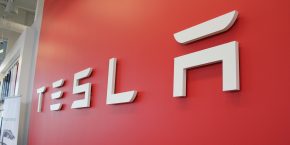
Morgan Stanley analyst Adam Jonas has long been warning of the impact of Tesla’s fast pace of innovation in the auto industry. He even warned that Tesla’s Autopilot machine learning could potentially render all other cars obsolete.
Now Jonas suggests that the auto industry’s inability to match Tesla’s over-the-air software update capability could make them “highly vulnerable to obsolescence”.
In a new note to clients today, Jonas stated that the Tesla Model S was launched 5 years ago and “there are almost no other cars on sale that are capable of OTA updates of firmware.”
He asks “Why is this taking so long?”
The analyst wrote in the note:
“The Model S is old – what’s everyone else’s excuse? We can understand that traditional car companies have held back on EV commercialization up to this point given low consumer demand and high losses. But we have a harder time understanding how almost no car companies have brought to market a car that is capable of over the air (OTA) updates of firmware. They continue to sell vehicles that are incapable of learning and improving and are highly vulnerable to obsolescence. Car companies have had ample opportunity to tear apart Model S’s in the lab. We suspect Tesla’s vertically integrated in-house software capabilities and its willingness to assume the risk of hacking make the difference.”
Jonas suggests that it has to do with Tesla being more aggressive and willing to take risks when it comes to software, and he might be right since he continues by citing a senior auto executive saying “we’re too worried about hacking” when explaining why they haven’t implemented over-the-air updates.
But he is also missing the problem that legacy automakers have with their franchise dealerships to keep happy. Those businesses revolve around servicing the vehicles and they need to be the middleman between the automaker and the client, which over-the-air updates undo.
Tesla is not encumbered by any franchise dealers and it has only benefits to try to service their vehicles remotely if possible by pushing over-the-air software fixes.
Nonetheless, any connectivity is indeed a hacking risk – something that CEO Elon Musk recently addressed by saying that preventing a ‘fleet-wide hack’ is Tesla’s top security priority.
With this said, Jonas does raise an interesting question. How far behind are other OEMs when it comes to OTA software updates? A few automakers, like Ford, GM and Nissan, have started dipping their toes in the concept with a few models, but none have fully embraced it like Tesla yet.
FTC: We use income earning auto affiliate links. More.



Comments